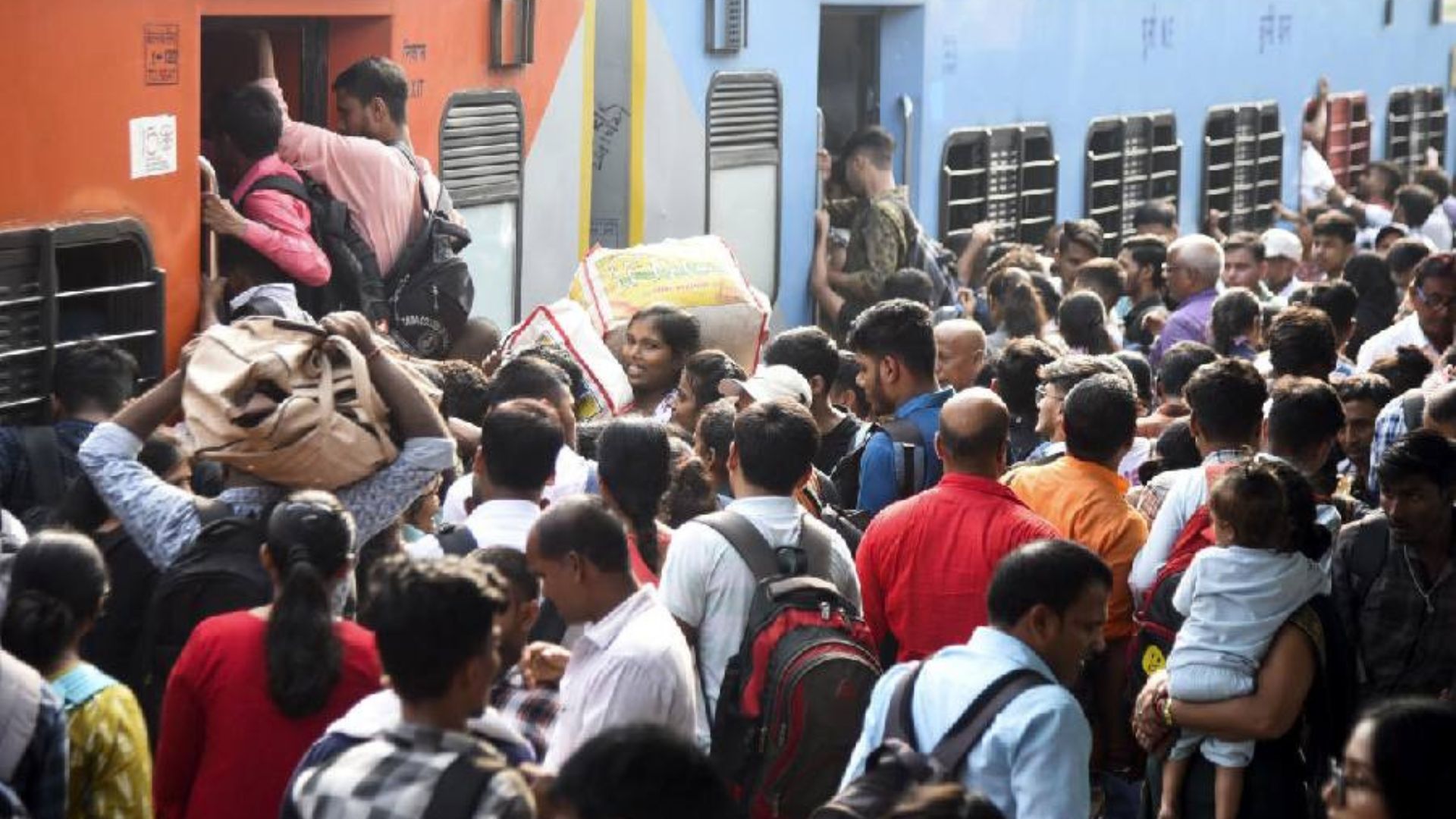
The development of any state is gauged by its infrastructure. Therefore, Electricity becomes an indispensable resource and parameter of development. One can’t image progress and development without electricity. It is not possible to realize the concept of development without electricity. There various byproducts of the development are directly proportional to electricity. The progress of the economy, social and economic well-being and consumption of electricity are attributes of this development. To foster progress, it is essential for any government to prioritize the energy sector. Decisions must be made to attract maximum investment in this sector, ensuring ample electricity availability to sustain industries and economic activities. This approach also aims to provide farmers and domestic consumers with uninterrupted 24×7 electricity.
Recognizing the growing significance of electricity in the social and economic realms, Chief Minister Bhajan Lal Sharma initiated efforts to make Rajasthan self-reliant in the energy sector as soon as he assumed office. He focused on strengthening the three key dimensions of the power system: production, distribution, and transmission. Under Sharma’s leadership, the state government has, in less than six months, made unprecedented and visionary decisions in the energy sector. These decisions are set to position Rajasthan as an energy surplus state in the near future.
To quickly fulfill the resolution of making the state an energy surplus state in the field of energy, the Chief Minister has recently approved the proposal for land allocation for 4 solar projects. Under this, 4780 hectares of land has been approved for allocation to Rajasthan Solar Park Development Company for 3 solar parks of 2450 MW in Bikaner district and 910 hectares of land has been approved for allocation to NTPC Renewable Energy for a solar project of 500 MW in Phalodi district. Under this, two solar parks of 1000 MW each and one of 450 MW will be established in Bikaner district. For the first solar park of 1000 MW, 1881 hectares of land has been allotted in village Surasar of Pugal tehsil. For the second solar park, 1194 hectares of land has been approved for allotment in Surasar and 807 hectares of land in village Bhanavatawala. Similarly, for the third solar park of 450 MW, 900 hectares of land has been approved for allotment in village Sardarpura of Chhatargarh tehsil. These solar parks will be developed in 3 phases by Rajasthan Akshay Urja Nigam under the Solar Park Scheme of Ministry of New and Renewable Energy (Central Government). 910 hectares of land has been approved for allotment to NTPC Renewable Energy Limited in village Bhadla of Bap tehsil of Phalodi district for setting up a 500 MW solar project. With the target of starting production in the next two years, these solar energy projects will fulfill the resolution of Chief Minister Shri Bhajan Lal Sharma to make Rajasthan self-reliant in the field of energy, especially renewable energy. These will accelerate the development of the state’s infrastructure. There will be no shortage of electricity for consumers and industrial units. These projects will create ample employment opportunities at the local level as well as give new impetus to economic activities in the region. These solar projects will also play an important role in environmental protection and will reduce carbon emissions by about 2 lakh tonnes annually. State-of-the-art solar panels and grid technology will be used in these solar parks, which will increase the capacity of energy production. An investment of about 10 thousand crores is expected in the state through these projects. Approved by the Ministry of New and Renewable Energy, Government of India, these projects will get 33 percent grant and the target is to complete them in the next two years.
With the vision of making the state self-reliant in the field of electricity, 5 MoUs and one power purchase agreement worth Rs 1 lakh 60 thousand crore were signed between 3 power corporations of the state and central undertakings like Coal India, NTPC, Sutlej Jal Vidyut Nigam, NLC India, NTPC Green Energy, Power Grid and REC in the Chief Minister’s Office on March 10 in the presence of Chief Minister Sharma. Through these MoUs and PPAs, it will be possible to generate more than 31 thousand 825 MW of electricity from thermal and renewable energy projects in the state in the coming time. The transmission system will be strengthened. Along with this, the infrastructure sector will also be strengthened. Out of these, 3 thousand 325 MW are thermal projects and 28 thousand 500 MW projects are renewable energy based.
Promoting power generation alone is insufficient; it’s equally crucial to ensure that the generated power reaches consumers with high quality, minimal loss, and without interruptions. Achieving this requires a robust transmission system. The Memorandum of Understanding (MoU) worth Rs. 10,000 crores with Power Grid will significantly strengthen the state’s transmission infrastructure.
The projects to be established through these MoUs will enable Rajasthan to achieve the goal of self-reliance in the field of electricity in the coming years. These will increase employment, investment, availability of electricity, strengthening of distribution and transmission system. Work is being done rapidly for the implementation of all these projects on the ground. Under this, apex and executive committees have been formed and potential project sites have been visited. In the case of joint ventures, discussions on the drafts are in process. Apart from this, 3 thousand 200 MW thermal and 8 thousand MW power plants will be constructed through tariff based tender process. Since the formation of this government in less than 6 months, work on 13 132 kV GSS and 1 220 kV grid sub-station has been completed. Under this, 132 kV GSS have been installed at Karoi (Bhilwara), Sarwad (Kekri), Piplaj (Ajmer), Soniana (Chittor), Baunli (Sawai Madhopur), Rasidpura (Sikar), Dhawa (Nagaur), Khokha (Jalore), Narehra (Kotputli-Bahror), Laxman Dungri (Jaipur), Sikri (Deeg), Raithal (Bundi) and Prabhatnagar (Hanumangarh) and 220 kV GSS at Revdar in Sirohi.
As soon as production starts from these projects, Rajasthan will become self-sufficient in terms of electricity and our dependence on other states for borrowing electricity through banking to meet the demand of the agricultural sector in the Rabi season will end. Apart from this, to meet the peak demand in the summer season, expensive electricity will not have to be purchased from the energy exchange. Along with this, to meet the demand of the agriculture sector in the Rabi season of the year 2023-24, more than 1 lakh 45 thousand MW of electricity was borrowed from various states through banking in the year 2023, which the state has to repay to these states by the coming month of September despite the peak demand of summer. When these projects are implemented on the ground, the demand for electricity of the farmers will be met during the farming season. It is noteworthy that the number of agricultural consumers through the three distribution companies in the state is more than 17 lakhs 39 thousand.















